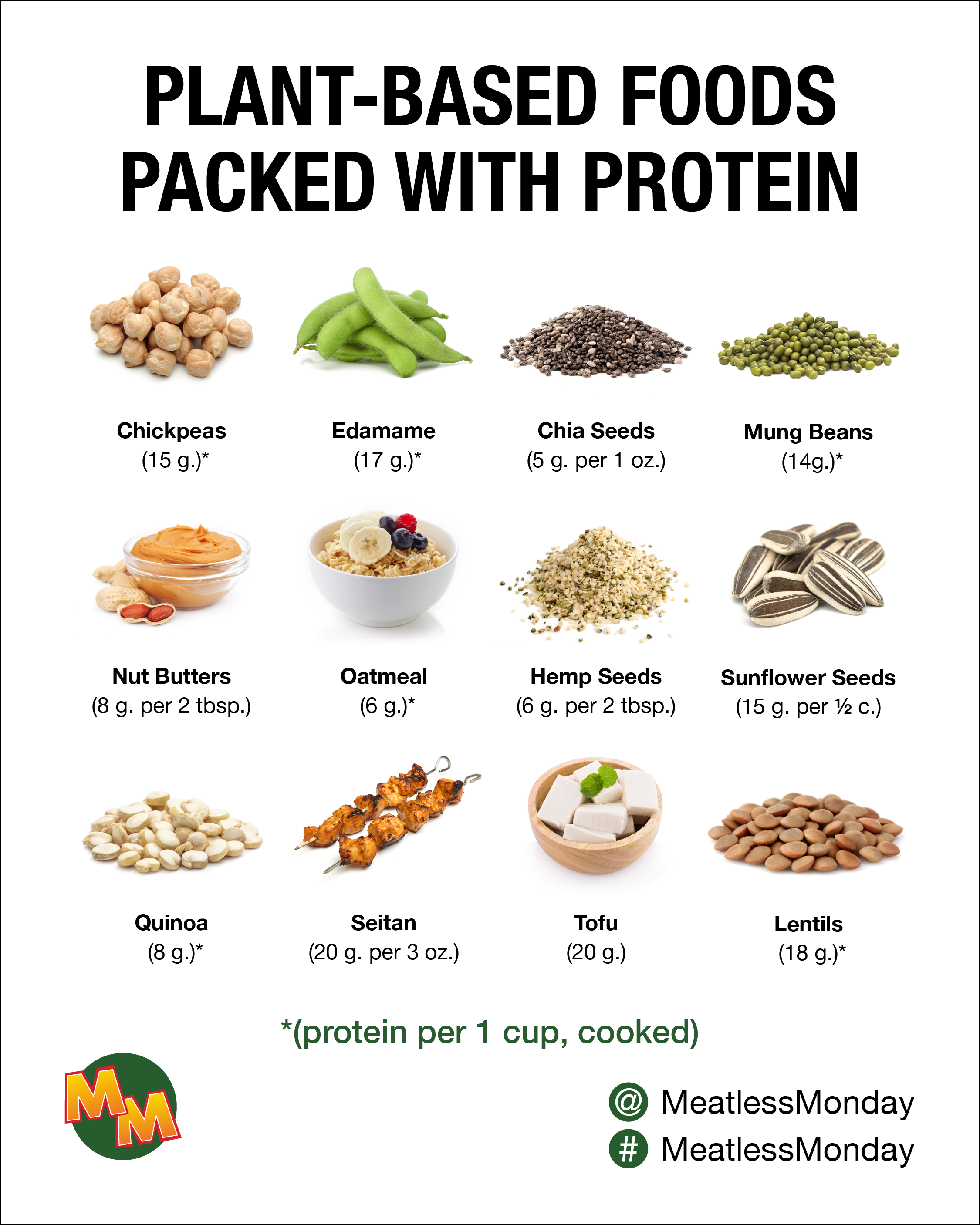Dietitian-Approved Sugar Free Sauces for Clean Eating Success
All Concerning Healthy And Balanced Food: Advantages of Enjoying Plant Based Choices
The discussion surrounding plant-based diets has actually obtained substantial focus over the last few years. Numerous individuals are checking out the possible wellness benefits, nutritional advantages, and ecological impacts connected with these dietary selections. As individuals end up being much more familiar with their food's influence on wellness and sustainability, questions arise about the usefulness of taking on such a way of life. What certain modifications can one expect, and just how might these options reshape not only individual wellness but also the planet's future?
Recognizing Plant-Based Diet Plans
Numerous people connect plant-based diet plans generally with vegetarianism or veganism, these diet plans can incorporate a broad array of consuming patterns that prioritize entire, minimally processed plant foods. Such diet regimens commonly include fruits, vegetables, whole grains, seeds, legumes, and nuts, while eliminating or restricting pet items. This versatility permits individuals to customize their nutritional selections according to personal preferences and nutritional requirements. Some might adopt a largely plant-based diet regimen while still periodically consuming meat or dairy, commonly referred to as a flexitarian strategy. The focus remains on incorporating more plant foods, which can lead to a varied range of meals and flavors. Recognizing these various interpretations of plant-based eating is vital for valuing its availability and charm in contemporary food society.
Health Benefits of Plant-Based Foods
The wellness advantages of plant-based foods are significant, providing a nutrient thickness benefit that supports general wellness. Study indicates that these foods can enhance heart health and play a vital function in effective weight monitoring. By incorporating a lot more plant-based choices, people might enhance their nutritional choices and advertise lasting health and wellness.
Nutrient Thickness Advantage
Nutrient density plays an important role in the health and wellness benefits of plant-based foods, making them a compelling choice for those looking for a well balanced diet plan. Plant-based foods, such as fruits, veggies, legumes, nuts, and whole grains, are usually rich in vital vitamins, minerals, and antioxidants while being lower in calories. This high nutrient density enables people to take in fewer calories while still satisfying their nutritional demands. Additionally, these foods are packed with nutritional fiber, advertising digestion health and wellness and assisting in weight monitoring. By integrating nutrient-dense plant-based options, customers can enhance their general health and wellness, support their body immune systems, and reduce the risk of persistent illness. Ultimately, the nutrient thickness of plant-based foods emphasizes their relevance in a health-conscious way of life.
Heart Health Enhancement

Weight Administration Assistance
Along with advertising heart health, a plant-based diet can substantially help in weight administration. This nutritional technique emphasizes entire foods such as fruits, veggies, vegetables, nuts, and whole grains, which are normally lower in calories and greater in fiber compared to animal-based products. The high fiber material aids enhance satiety, reducing general calorie intake. Plant-based diet regimens are commonly rich in vital nutrients while low in unhealthy fats, making it less complicated to keep a healthy weight. Research study shows that individuals that adopt a plant-based way of life have a tendency to have reduced body mass indexes (BMIs) and experience even more successful weight management contrasted to those who eat meat-heavy diet plans. Welcoming plant-based options is a tactical selection for reliable weight management.
Nutritional Value of Plant-Based Ingredients
Plant-based ingredients are rich in necessary nutrients, supplying a varied selection of vitamins, minerals, and antioxidants that add to total wellness. A contrast of protein resources exposes that while animal products are typically seen as exceptional, lots of plant-based choices provide ample protein and various other advantageous substances. Recognizing the dietary value of these components can assist individuals make educated nutritional selections.
Crucial Nutrients in Plants
Nutrient-rich ingredients located in plants supply a varied range of crucial nutrients that contribute greatly to overall health. These ingredients are rich in vitamins A, C, and K, which sustain Learn More immune feature, vision, and blood clot, respectively. On top of that, plants offer important minerals such as calcium, magnesium, and potassium, essential for heart health and wellness, muscle mass feature, and bone strength. The existence of fiber in plant-based foods aids food digestion and advertises a healthy digestive tract microbiome. Anti-oxidants, discovered perfectly in veggies and fruits, assistance combat oxidative stress and anxiety and reduce inflammation. In addition, lots of plant foods are reduced in calories yet high in nutrients, making them an excellent selection for those seeking to maintain a healthy weight while making sure excellent nutrient intake.
Comparing Protein Resources
Protein sources differ considerably in their nutritional profiles, with plant-based ingredients supplying one-of-a-kind benefits. Unlike pet proteins, which frequently contain hydrogenated fats and cholesterol, plant proteins often tend to be reduced in these undesirable parts. Legumes, nuts, seeds, and whole grains are abundant in necessary amino acids, fiber, vitamins, and minerals. Lentils offer high protein content alongside substantial iron and folate, while quinoa is a full protein, offering all 9 necessary amino acids. Furthermore, plant-based healthy proteins are usually come with by anti-oxidants and phytochemicals that support total wellness. The shift to plant-based healthy protein resources not just enhances dietary intake yet additionally aligns with lasting nutritional techniques, decreasing ecological impact and promoting long-term health and wellness advantages.
Environmental Effect of Plant-Based Consuming
As awareness of climate modification expands, numerous individuals are exploring lasting nutritional options that can substantially minimize their ecological footprint. Plant-based eating has become a significant factor to reducing greenhouse gas emissions, which are mainly related to animals production. The growing of fruits, grains, vegetables, and legumes typically calls for less sources, such as water and land, contrasted to animal farming. Furthermore, plant-based diets can bring about decreased logging, as less land is required for grazing animals or growing animal feed. By shifting towards plant-based alternatives, consumers can sustain biodiversity and promote healthier communities. In general, welcoming plant-based eating not only advantages personal wellness but likewise stands for a vital step towards environmental sustainability and preservation initiatives.
Overcoming Common Misconceptions
While many individuals identify the advantages of a plant-based diet regimen, a number of misconceptions commonly hinder them from completely accepting this way of living. A typical belief is that plant-based diet plans lack enough healthy protein; however, various plant sources, such as vegetables, nuts, and tofu, supply adequate protein. Additionally, some assume that this diet is expensive, when as a matter of fact, staples like beans, rice, and seasonal vegetables can be rather budget-friendly. One more misunderstanding is that plant-based consuming is extremely limiting, whereas it actually uses a varied variety of tastes and foods. Ultimately, several stress that a plant-based diet regimen may bring about deficiencies, yet with appropriate planning, individuals can get all important source essential nutrients, including minerals and vitamins, while enjoying a wide range of scrumptious dishes.
Tips for Transitioning to a Plant-Based Way of living
Making the change to a plant-based lifestyle can be an enriching experience, though it frequently calls for some guidance to navigate the preliminary modifications. Individuals are motivated to start slowly, incorporating more fruits, veggies, beans, and whole grains right into their dishes while decreasing meat and milk intake. Meal preparation is important; preparing a regular food selection can assist relieve the adjustment and prevent final undesirable selections. Exploring cooking approaches and new dishes can additionally maintain and enhance the experience excitement about plant-based consuming. In addition, joining support groups or areas can give inspiration and share beneficial suggestions. Staying notified about nutrition assurances balanced dishes, protecting against shortages while promoting a healthy and balanced, enjoyable plant-based way of living.

Delicious Plant-Based Dish Ideas
Checking out delicious plant-based meal ideas can inspire people to welcome a more healthy diet regimen. One popular choice is a hearty quinoa salad, including cherry tomatoes, cucumber, and a spicy lemon-tahini dressing. An additional favorite is a savory lentil stew, loaded with carrots, celery, and aromatic natural herbs, excellent for a reassuring dinner. For breakfast, overnight oats made with almond milk, chia seeds, and covered with fresh berries provide a healthy beginning to the day. Furthermore, a dynamic vegetable stir-fry with tofu and a selection of colorful veggies can be a quick yet satisfying meal. Ultimately, velvety avocado salute on whole-grain bread, sprayed with seeds and flavors, offers an easy yet flavorful snack. These dishes display the variety and splendor of plant-based eating.

Frequently Asked Inquiries
Can a Plant-Based Diet Plan Supply Sufficient Protein?
The concern of whether a plant-based diet can give enough healthy protein is typical. Countless sources, consisting of legumes, nuts, seeds, and entire grains, can meet protein needs properly, sustaining a healthy and balanced diet for individuals.
Are Plant-Based Diet Regimens Appropriate for Children?
The suitability of plant-based diet plans for youngsters depends on cautious planning. Sufficient nutrients have to be assured, consisting of healthy proteins, vitamins, and minerals. With correct guidance, such diets can sustain healthy growth and development in kids.
How Do I Dine Out on a Plant-Based Diet?
Eating out on a plant-based diet involves looking for dining establishments with diverse menus, check my site asking for adjustments, and discovering vegan-friendly alternatives. Preparation ahead and connecting dietary preferences can improve the dining experience while keeping dietary options.
What Prevail Allergens in Plant-Based Foods?
Usual allergens in plant-based foods include soy, gluten, nuts, and seeds - BBQ Sauces. Individuals following a plant-based diet regimen ought to be aware of these allergens and review labels meticulously to stay clear of unfavorable responses and assure secure consumption
Can Plant-Based Diets Assist With Weight Management?
Research study suggests that taking on a plant-based diet plan may promote weight-loss because of its normally lower calorie density and higher fiber web content. This combination can enhance satiation, aiding people manage their calorie intake effectively. Several people associate plant-based diet plans mostly with vegetarianism or veganism, these diet regimens can encompass a wide variety of eating patterns that focus on entire, minimally processed plant foods. Nutrient density plays an important function in the health benefits of plant-based foods, making them an engaging choice for those seeking a balanced diet plan. Plant-based diets have been revealed to considerably enhance heart health, as they frequently contain aspects that support cardio feature. In enhancement to promoting heart wellness, a plant-based diet plan can considerably aid in weight monitoring. An usual idea is that plant-based diet plans do not have sufficient protein; however, numerous plant sources, such as beans, nuts, and tofu, give adequate healthy protein.